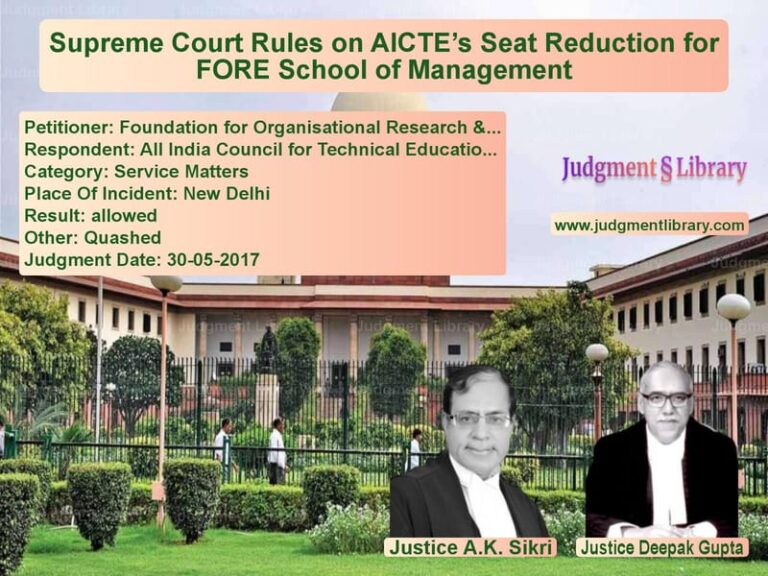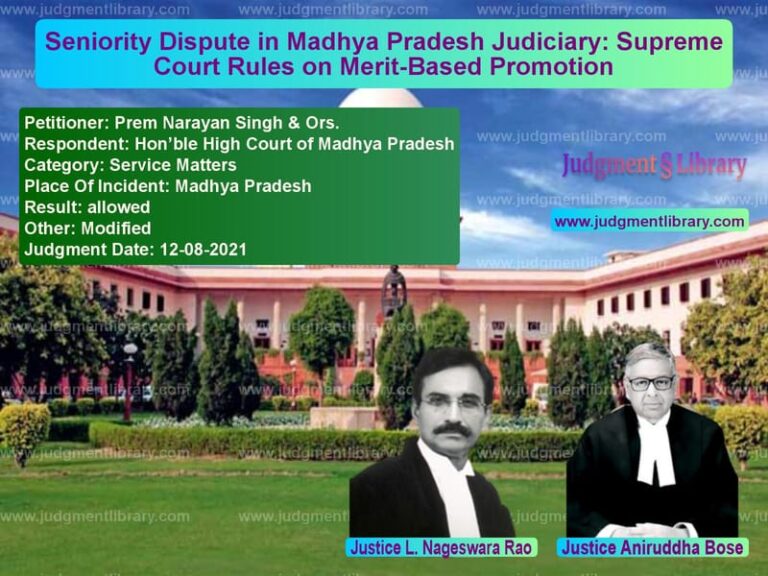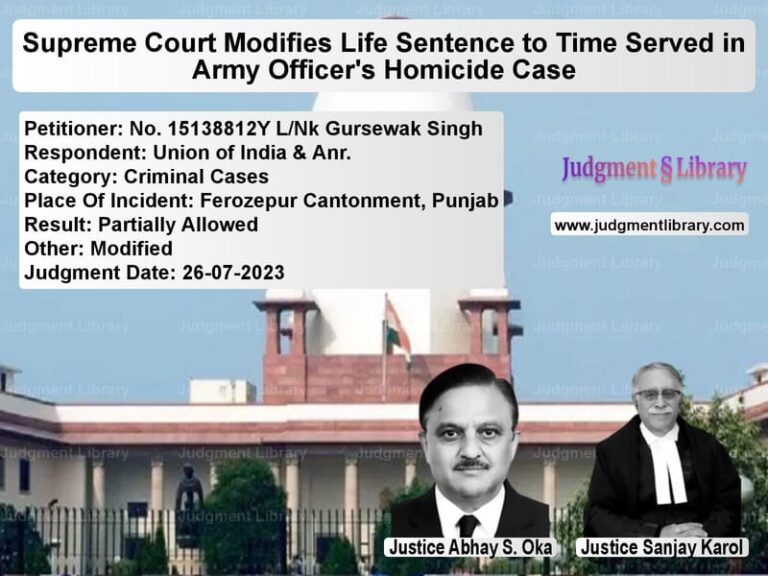Supreme Court Rules Against Penalty for Delayed Contract Completion in Odisha
The Supreme Court of India has ruled in favor of contractors in the case of State of Odisha & Ors. v. Radheshyam Agrawal, holding that the state government cannot impose penalties while granting an extension of time for completing a contract unless expressly provided under the contract terms or statutory provisions. The judgment clarifies the principles governing contractual penalties and reinforces the importance of procedural fairness.
Background of the Case
The dispute arose when the State of Odisha imposed a penalty on contractors while granting an extension of time to complete road construction work under the Odisha Public Works Department (OPWD) Code. The contractors, including Radheshyam Agrawal, were awarded contracts for road improvement projects but could not complete the work within the stipulated time due to various reasons. They sought an extension, which was granted, but the state imposed a penalty at the rate of 0.25% on the value of work done during the extended period.
Challenging the imposition of penalties, the contractors approached the Orissa High Court, which ruled in their favor and set aside the penalties. Aggrieved by the High Court’s decision, the State of Odisha appealed to the Supreme Court.
Arguments of the Parties
Petitioner’s Arguments (State of Odisha)
- The contractors failed to complete the work within the agreed timeframe, justifying the imposition of a penalty.
- Under Clause 3.5.5(v) of the OPWD Code, the government has the authority to impose penalties for delays in work execution.
- The penalty was necessary to ensure contractual discipline and prevent delays in public infrastructure projects.
- The contractors accepted the extension along with the penalty and did not challenge it immediately.
Respondent’s Arguments (Contractors)
- The penalty was arbitrary and illegal as it was not based on any contractual provision.
- Clause 3.5.5(v) of the OPWD Code applies only when a contract is terminated, not when an extension is granted.
- The government did not provide an opportunity to the contractors to be heard before imposing the penalty.
- Since the delay was not entirely attributable to the contractors, the penalty was unjustified.
Key Observations of the Supreme Court
The Supreme Court upheld the Orissa High Court’s decision, making the following key observations:
- No Contractual Basis for Penalty: The Court found that neither the contract agreement nor the OPWD Code provided for penalties in cases where an extension of time was granted.
- Clause 3.5.5(v) Not Applicable: This clause applies when a contract is terminated due to non-performance. Since the contracts were not terminated but extended, the provision could not be invoked.
- Violation of Natural Justice: The Court ruled that the penalty was imposed without giving the contractors an opportunity to be heard, violating fundamental principles of procedural fairness.
- State Cannot Impose Penalty Arbitrarily: The government must act within the contractual framework and cannot impose penalties unless explicitly provided for.
Final Ruling
The Supreme Court ruled in favor of the contractors and upheld the High Court’s decision to set aside the penalties. The key conclusions were:
- The penalties imposed by the State of Odisha were illegal and arbitrary.
- Clause 3.5.5(v) of the OPWD Code was wrongly applied.
- The government cannot impose penalties without due process.
- The contractors were entitled to an extension without any financial penalty.
Accordingly, the Supreme Court dismissed the state’s appeal and upheld the High Court’s decision.
Implications of the Judgment
The ruling has significant implications for government contracts and public procurement:
- Ensures Fairness in Government Contracts: The judgment prevents arbitrary imposition of penalties and ensures that contractors are treated fairly.
- Strengthens Rule of Law: Government authorities must adhere strictly to contractual terms and legal provisions.
- Clarifies Legal Position on Contractual Extensions: Contractors who seek time extensions cannot be penalized unless expressly provided for in the contract.
- Protects Contractors from Unfair Financial Burdens: The decision safeguards contractors from undue financial penalties that could impact their business operations.
Conclusion
The Supreme Court’s ruling in State of Odisha v. Radheshyam Agrawal reinforces the legal principle that penalties cannot be imposed in government contracts without a clear contractual or statutory basis. The decision ensures that contractual extensions are granted fairly and that contractors are not subjected to arbitrary financial penalties. This landmark judgment will serve as a guiding precedent in future disputes involving contractual extensions and penalties in public works contracts.
Petitioner Name: State of Odisha & Ors..Respondent Name: Radheshyam Agrawal.Judgment By: Justice M.R. Shah, Justice B.V. Nagarathna.Place Of Incident: Odisha.Judgment Date: 23-03-2023.
Don’t miss out on the full details! Download the complete judgment in PDF format below and gain valuable insights instantly!
Download Judgment: state-of-odisha-&-or-vs-radheshyam-agrawal-supreme-court-of-india-judgment-dated-23-03-2023.pdf
Directly Download Judgment: Directly download this Judgment
See all petitions in Contract Disputes
See all petitions in Public Sector Employees
See all petitions in Employment Disputes
See all petitions in Judgment by Mukeshkumar Rasikbhai Shah
See all petitions in Judgment by B.V. Nagarathna
See all petitions in dismissed
See all petitions in supreme court of India judgments March 2023
See all petitions in 2023 judgments
See all posts in Service Matters Category
See all allowed petitions in Service Matters Category
See all Dismissed petitions in Service Matters Category
See all partially allowed petitions in Service Matters Category







